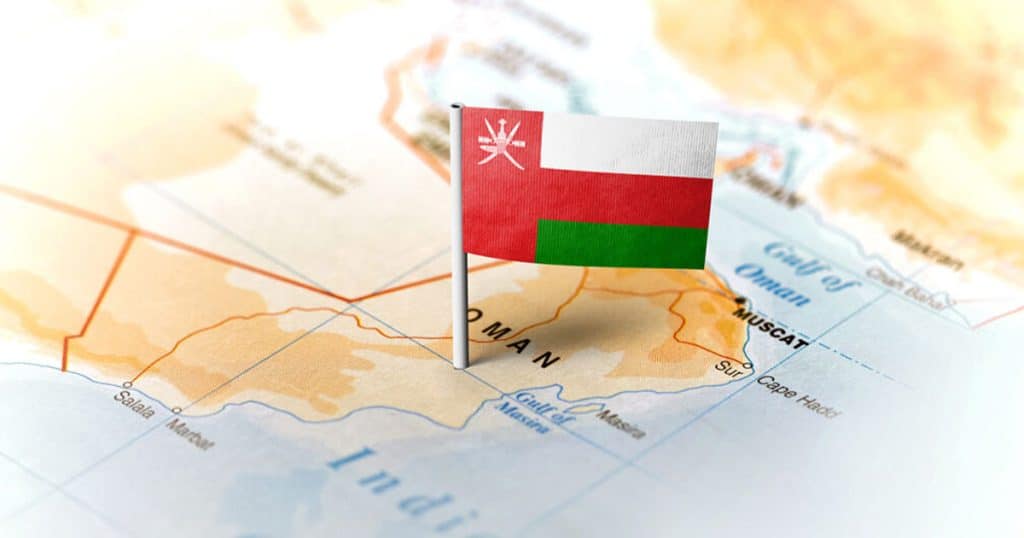+968 9596 3381
Phone Number
[email protected]
Email Address
Mon - Thu: 8:00 - 5:00
Online store always open
Phone Number
Email Address
Online store always open
WhatsApp Us Today
Drop Us an Email Today
Google Map Location
Saturday to Thursday

Introduction: Oman’s New Commercial Agency Law Explained
What Is the Commercial Agency Law in Oman? Key Definitions
Overview of Royal Decree 77/26 and Regulatory Authority
Major Updates in 2025: Ministerial Decision 245/2025
Who Must Comply With the New Law? Agents, Principals & Businesses
Registration, Renewal & Commercial Agency Register Requirements
Authorized Signatories under Article 13bis – What Changed
Restrictions on Third-Party Signatories: What It Means for Multinationals
Appointment of Non‑Shareholder Managers: New e‑Filing Rules
Renewal Deadlines & Penalties for Non‑Compliance
How to Structure Agency Agreements under the New Law
Avoiding Monopoly Restrictions: Competition & Multiple Agents
Commercial Agency vs Distribution Agreements: Key Differences
Due Process for Termination: Compensation Rights & Options
Record‑Keeping, Documentation & Compliance Monitoring
Practical Steps to Align with Oman’s Updated Law
Risks and Consequences of Non‑Registration or Violation
Benefits of Proper Compliance for Agents & Foreign Principals
Conclusion: Staying Ahead in Oman’s Agency Landscape
FAQs on Navigating Oman’s New Commercial Agency Law
Oman recently updated the Oman Commercial Agency Law, reshaping agency-distributor relationships and enhancing transparency. These changes aim to create a more competitive environment, reduce regulatory risk, and clarify obligations for foreign principals, Omani agents, and multinationals. This guide covers updates under Royal Decree 77/26 and Ministerial Decision 245/2025, helping businesses navigate commercial agency Oman rules confidently.
Under the Oman Commercial Agency Law, a commercial agency is any agreement appointing an Omani entity to promote or distribute a foreign principal’s goods or services in exchange for commission or profit. These agreements must be registered with the Ministry to be enforceable. Key terms include:
Commercial agent: Licensed Omani entity appointed by a foreign principal
Foreign principal: Manufacturer or service provider based outside Oman
Exclusive agency: Single agent for the territory
Non‑exclusive agency: Multiple agents for the same principal
The law ensures transparency in agency registration Oman and protects both parties where contracts and renewal obligations are defined.
The primary legal framework is Royal Decree 26/1977, as amended over time (notably Royal Decree 34/2014 and 77/26). The Ministry of Commerce, Industry & Investment Promotion (MoCIIP) oversees commercial agency Oman, requiring agents to register in the official Commercial Agencies Register. Only registered agencies enjoy enforceability under Oman law.
Ministerial Decision 245/2025, issued in mid‑2025, brought two major updates:
Authorized signatories: Article 13bis introduced strict rules—only shareholders, board members, company managers, or internal financial/admin staff may sign official documents.
Non‑shareholder manager appointments: Must now be submitted electronically with the appointee’s written consent.
These changes impact agency registration Oman and represent a shift toward modern governance and electronic processing.
If you are a local agent, foreign principal, or part of a corporate group, you must comply with the Oman Commercial Agency Law if:
You distribute goods or services under an agency agreement
You are licensed via the MoCIIP Commercial Agencies Register
You operate as a principal-agent structure in Oman
Even renewal commercial agency Oman obligations fall under the law—failure to renew registration can lead to invalidity and sanctions.
To comply with commercial agency Oman rules, agents must:
Submit the signed agency agreement to MoCIIP
Complete registration in the Commercial Agencies Register
Renew registration periodically as prescribed by law
Update registration if there are changes in activity, address, or signatory
Failure to maintain current agency registration Oman status exposes parties to legal risk and non-enforceability.
Article 13bis restricts authorized signatories to:
Shareholders (alone or jointly)
Owners of the company’s capital
Board members
Company manager or internal financial/administrative employees
This shift aims to eliminate reliance on third-party signatories and strengthen governance under the Oman Commercial Agency Law.
If foreign principals used group-level employees not formally employed by the Oman entity as signatories, those roles now violate Article 13bis. Renewal commercial agency Oman may be at risk if signatory compliance is not met. Businesses should assess whether their current signatories are eligible under the new law and make changes during the six‑month grace period.
Under Ministerial Decision 245/2025, any appointment of a non‑shareholder manager must be:
Filed electronically via the MoCIIP portal
Accompanied by written consent from the manager
This modernizes compliance under agency registration Oman, ensuring clear and transparent manager changes.
The Ministry has issued multiple warnings that operating without valid registration or failing to renew your agency status breaches the Oman Commercial Agency Law. Penalties can include fines, license suspension, and inability to enforce agency rights. Agents should monitor expiry dates and renew timely.
Best practices for drafting compliant contracts:
Define term clearly: limited or unlimited duration
State exclusivity and territory
Include termination clauses, renewal terms, and compensation provisions
Clarify roles, rights, and statutory obligations per Oman Commercial Agency Law
Register the agreement promptly and store authenticated copies
Structured agreements reduce disputes and support enforcement under Oman law.
Oman’s revisions empower the Council of Ministers to limit agency agreements when signs of monopoly emerge. Foreign principals must manage the number of agents—distribution control, exclusivity, and market concentration are scrutinized. A balanced structure helps avoid commercial agency Oman violations and potential deregistration.
Commercial Agency Law requires registration; breaches jeopardize enforceability.
Distribution agreements fall under civil law and typically do not require registration.
Agents have special protections under agency law (e.g. previous compensation rights), while distributors do not.
Under the updated law, agent protections are limited to contractually defined rights.
Understanding distinctions matters in structuring legal pathways for Omani market entry.
Previously, agents could claim statutory compensation if terminated “without cause.” This protection has now been removed. Now:
Terminate agency agreements based on contract terms without statutory claims
Foreign principals can sell directly or appoint alternative agents
Renewal disputes are contractually, not legally, governed
This modernized approach supports fairer outcomes under the updated Oman Commercial Agency Law.
Maintain:
Copies of registered agency agreements and renewal certificates
Governance documents proving signatory eligibility under Article 13bis
Electronic filing confirmations for manager appointments
Renewal timelines and compliance logs
Accurate records help demonstrate alignment with commercial agency Oman requirements.
✅ Identify your current agent or principal structure
✅ Review signatories and manager statuses for compliance with Article 13bis
✅ Register or renew agency agreements via MoCIIP
✅ Re-draft contracts to remove outdated statutory protections
✅ Plan for flexible appointment of shareholders or board members as signatories
✅ Document every process to meet renewal commercial agency Oman requirements
Non-compliance can result in:
Loss of legal enforceability of agency rights
Fines or suspension of CR/agency registration
Damage to reputation and commercial trust
Inability to renew or amend agency agreements
Avoid these risks by aligning with updated Oman Commercial Agency Law provisions promptly.
Compliant stakeholders enjoy:
Legal certainty in agency termination and renewal
Ability to restructure distribution without compulsion
Competitive access to Omani market without monopoly limitations
Trust from regulators, partners, and legal advisors
Efficient governance aligned with digital filing and corporate practice
Strategic compliance positions your business for growth and regulatory agility.
Oman’s commercial agency landscape is evolving to encourage competition, clarify roles, and streamline governance. The updated Oman Commercial Agency Law and Ministerial Decision 245/2025 introduce modern signatory restrictions and digital requirements that reshape agency registration, renewal, and contract enforcement. Companies that proactively adjust their signatory structures, re-evaluate agency contracts, and maintain up-to-date registrations will operate with clarity and risk resilience in Oman.
What is Article 13bis in the Oman Commercial Agency Law?
Only shareholders, board members, managers, or internal finance/admin staff may now act as authorised signatories—third parties are excluded.
Must every agency agreement be registered in Oman?
Yes. Under Royal Decree 77/26, only registered commercial agency Oman agreements are legally enforceable.
Is compensation still payable if I terminate an agency?
Statutory compensation rights have been removed. Compensation now depends on contractual terms.
Can foreign principals sell directly without an agent?
Yes. The prohibition against direct sales has been repealed under the updated law.
Who needs to submit electronic filings under the new law?
Any appointment of a non-shareholder manager must be filed electronically with written consent via MoCIIP’s portal.
What happens if I fail to renew commercial agency registration Oman?
Operating with expired registration violates the law, potentially resulting in fines or loss of enforceability.
Can third-party group executives act as signatories?
Not under Article 13bis. Signatories must be affiliated directly with the Omani entity.
Does the law limit multiple agents per principal?
Yes, to prevent monopolies the Council may limit the number of agents per foreign principal.
What is the six-month grace period?
Companies have six months from Decision 245/2025 issuance to align signatories and roles under new requirements.
Is digital contract signing allowed?
Yes, provided signatories meet Article 13bis criteria and consent is filed.
How long does registration take?
Typically within 15 business days after submission to MoCIIP.
Are distribution agreements regulated under this law?
No, those fall under civil contract law and are not registrable under the Commercial Agency Law.
Do term renewals require automatic registration?
No—automatic renewal is no longer guaranteed; renewal depends on application and approval.
Can agents challenge deregistration?
Yes—they can appeal via MoCIIP or judicial process if deregistration occurs due to competition rules.
How do we structure compliant agency contracts?
Clearly define territory, term, termination rights, renewal mechanics, and align with updated law provisions.
Are there new compliance audit requirements?
Not yet, but the Ministry may request documents proving signatories and registration as part of enforcement.
Can Oman nationals directly sign agency contracts?
Yes, as shareholders or board members, they qualify under Article 13bis.
What if agent registrations are not updated for years?
Ministry warnings indicate that non-renewal or outdated records may lead to legal consequences.
Does this reform apply to existing agreements retroactively?
Yes—existing registered agreements must comply with new signatory rules and registration updates.
Does Oman allow direct imports from foreign principals without an agent?
Yes—the requirement to appoint an Omani agent has been repealed, allowing broader market access.









Let us handle your company registration, office setup, and licensing to ensure a seamless process.
At setupinoman, we specialize in assisting businesses with establishing their presence in Oman. Our services include:
Business Registration & Licensing – Handling all MoCIIP applications and approvals.
Legal Documentation & Compliance – Ensuring smooth document translations and notarization.
Banking & Office Setup – Helping businesses secure bank accounts and office leases.
Visa & Employee Services – Managing work permits and Omanization requirements.
What is the minimum investment required to qualify for a residency visa in Oman?
The minimum investment typically starts from OMR 20,000 for standard investor visas. However, the Golden Visa program requires investments starting from OMR 250,000.
Can I own 100% of my business in Oman as a foreign investor?
Yes, Oman allows 100% foreign ownership in most sectors, especially under the Foreign Capital Investment Law. Some regulated sectors may require local participation.
Is real estate investment enough to obtain a residency visa in Oman?
Yes, under the Golden Visa category, purchasing property worth at least OMR 250,000 can qualify you for long-term residency.
What is the difference between the Golden Visa and the Standard Investor Visa?
Golden Visas offer longer residency terms (5–10 years), faster processing, and broader eligibility, while Standard Investor Visas require lower investment but shorter duration and renewals.
How long does the investor visa process take?
On average, it takes 4 to 8 weeks, depending on security clearance, company registration, and documentation accuracy.
Can I apply for residency before launching my business?
You must complete company registration and capital deposit before applying for the residency visa under the business investor category.
Is it necessary to open a corporate bank account in Oman for this process?
Yes, you need to deposit the minimum share capital into a corporate account to receive the capital deposit certificate, which is essential for visa processing.
Are there any age or nationality restrictions for investor visas?
There are no age restrictions, and citizens from most countries are eligible, although background checks and financial verification are required.
Do I need a physical office in Oman for my business registration?
Yes, a registered office address is mandatory — this can be a virtual office, shared workspace, or physical premises, depending on your business type.
What types of businesses are best for investment-based residency?
Tourism, tech, healthcare, logistics, real estate development, and manufacturing are some of the most attractive sectors for foreign investors.
Is free zone investment also eligible for residency visas?
Yes, businesses established in Oman’s free zones like Duqm or Salalah can qualify, though some limitations apply based on visa type and activity scope.
Can I bring my family with me under an investor visa?
Yes, investor visa holders can sponsor family members including spouse and children, subject to documentation and proof of income.
What are the key documents required for an investor visa application?
Passport copies, security clearance, MOA, business license, capital deposit certificate, tenancy contract, and recent photographs are commonly required.
Do I need to hire local employees?
While not mandatory in all cases, certain sectors may require a minimum Omanization rate to qualify for full operational licensing and staff visa issuance.
What happens if I close my company after receiving the residency visa?
Your visa may be cancelled unless you transfer your sponsorship or obtain a different qualifying residency basis (e.g., real estate or employment).
How long is the investor visa valid?
Standard visas are issued for 2–5 years and renewable; Golden Visas are valid for 5 or 10 years, depending on the investment category.
Can I operate multiple businesses under one investor visa?
Yes, but you must ensure each entity is properly registered, and you hold a qualifying ownership percentage in each.
Are there any tax advantages for foreign investors?
Oman offers no personal income tax and competitive corporate tax rates (15%). Free zones also offer tax holidays for up to 10 years.
Can I change business activities after obtaining a visa?
Yes, but you must update your commercial registration and possibly re-obtain approvals or licenses depending on the new activity.
Is a local sponsor required for mainland businesses?
Not anymore in most sectors. Since the law change in 2020, most businesses can be 100% foreign-owned without requiring a local partner.
How do I maintain my visa status if I spend time abroad?
Investor visas typically allow you to spend time abroad, but extended absence (6+ months) may affect renewal or validity, unless explained.
Are digital or online businesses eligible?
Yes, tech and e-commerce businesses are highly encouraged and eligible for both investor and long-term residency options.
Do I need to show ongoing revenue to maintain the visa?
Not always, but inactivity or lack of compliance may risk rejection during renewal. Annual filings and proof of operation are recommended.
Can I apply for residency through an existing business I acquire?
Yes, provided you meet ownership thresholds and the business is compliant with all legal, tax, and licensing requirements.
What is the role of the Oman Investment Authority in this process?
OIA supports large-scale strategic investments, especially in sectors aligned with Vision 2040. Smaller businesses work mainly with MOCIIP and ROP.
Is the visa tied to one company or can I invest in multiple?
You can invest in multiple companies, but your primary residency visa will be tied to the company where you have majority stake or initial approval.
Do I need health insurance for the investor visa?
Yes, valid health insurance is a prerequisite during visa application and renewal processes.
How much capital is required for the Golden Visa through real estate?
You must invest at least OMR 250,000 in approved properties; for 10-year visas, the amount increases to OMR 500,000 or more.
What is the role of the Royal Oman Police (ROP) in this process?
ROP handles visa issuance, background verification, residency cards, and security clearances.
Can I get citizenship through business investment in Oman?
Currently, Oman does not offer direct citizenship-by-investment programs. However, long-term visa holders may be eligible for permanent residency or naturalization under exceptional circumstances.
Fill out our quick and easy contact form below. Briefly tell us about your vision and goals, and we’ll be in touch shortly to discuss a personalized plan for your success.
Al-Khuwair, Muscat, Sultanate of Oman